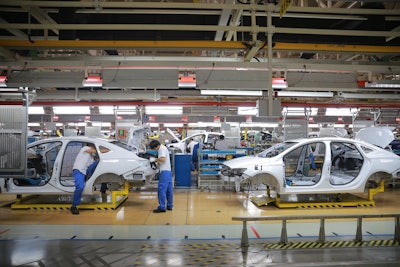
A recent analysis argues that companies should primarily bear the burden of ensuring that global supply chains are operating responsibly.
The report, commissioned by British banking firm Standard Charter and written by analysts from The Economist, said that globalization swept up the developing world in rapid industrialization before those nations were able to establish proper practices and regulations.
As such, the report said, companies that operate in those emerging markets have a moral obligation to consider nearby populations and environments.
But the analysis also noted the business impacts — both positive and negative — of running responsible supply chains throughout the world.
Reports of unsafe working conditions or environmental contamination, which can cost companies dearly, can now reach global audiences almost instantaneously from every corner of the globe — and advocacy groups are increasingly on the lookout for them.
In addition, governments in the developed world continue to take steps to increase corporate sustainability reporting and protect laborers and natural resources worldwide.
Businesses that operate responsibly, meanwhile, could help mitigate threats from climate change or prove more attractive to workers in tight labor markets. Company leaders also told the publication that consumers, rather than regulators or advocacy groups, are the primary motivation to build ethical supply chains.
"Firms need to get out ahead of the regulatory wave and show leadership in improving supply chain transparency and management," analysts wrote. "Those who do will find it does not just mitigate risks, but also generates opportunities."
The scale of the challenge, however, could prove daunting, the study warned.
The report found that senior executives and board members increasingly recognize the value of responsible supply chains to their businesses, but a "significant minority" allowed their supply chain oversight to decline in recent years.
Larger corporations can rely on thousands of suppliers, and even small companies are much more likely to source products from across borders. Business leaders highlighted the difficulty of completely understanding and monitoring those networks, but the report suggested that the availability of digital technologies and external help "disputed" their claims.
"Corporations are best-placed to understand and take action on their supply chains to mitigate both financial and ethical risks," the analysts wrote.


















